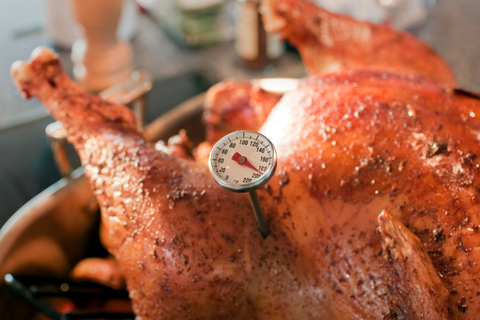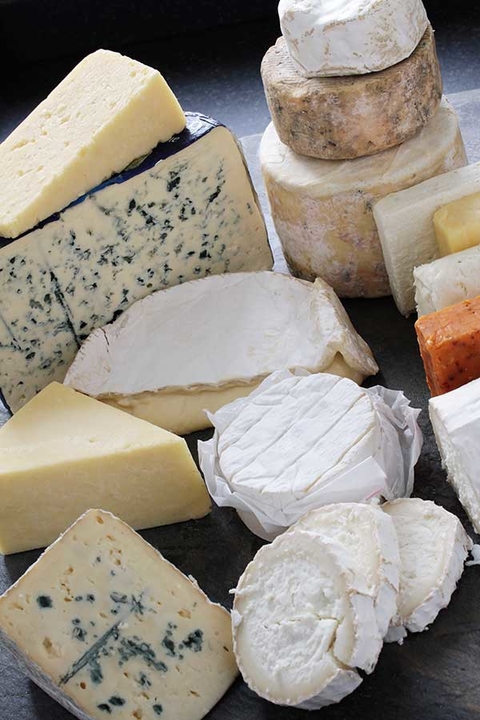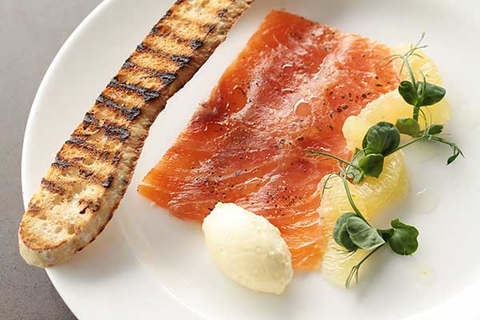Listeriosis is a foodborne illness caused by bacteria (Listeria monocytogenes) that grow at refrigeration temperatures. Listeria monocytogenes is found in the intestines of animals and in soil, water and plants.
Q. What is listeria?
A. Listeria monocytogenes is bacteria found in soil and water. Animals carry it without appearing ill, which in turn contaminates food of animal origin, such as meat and dairy products. Vegetables grown in soil fertilized with tainted manure can become contaminated.
Q: What foods are most often contaminated with listeria?
A. Raw milk, soft cheese like feta, brie or raw vegetables can contain Listeria monocytogenes. Poultry, meats (including hot dogs and lunch meat) and prepared, chilled ready-to-eat foods are also at higher risk.
Q. How is listeria killed?
A. Pasteurization and heat used to prepare ready-to-eat processed meats kill listeria. However, contamination can occur after processing. Listeria grows at refrigeration temperatures and multiplies each day the contaminated product is stored.
Q. What are the symptoms of listeriosis?
A. Symptoms, including nausea, vomiting, diarrhea, headache, chills and fever in otherwise healthy adults generally begin 2 days to 3 weeks after eating contaminated food. In pregnant women, listeria typically causes flu-like illness with fever and chills. In other people, symptoms may include fever, severe headache and stiff neck.
Q: How do I reduce my risk for listeriosis?
A. Reduce your risk for listeriosis by:
- Cooking raw food from animal sources, such as beef, pork or poultry to the correct temperature.
- 145 degrees F for whole meats, plus 3 minutes stand time for safety.
- 160 F for ground meats, no stand time needed.
- 165 F for all poultry, ground or whole.
- Wash raw vegetables thoroughly before eating.
- Keep uncooked meats separate from vegetables, cooked foods and ready-to-eat foods.
- Avoid unpasteurized (raw) milk or foods made from unpasteurized milk.
- Wash hands, knives and cutting boards after handling uncooked foods.
- Consume perishable and ready-to-eat foods as soon as possible.
Q: Should people at high-risk (pregnant women, young children, elderly and people with low immunity) take extra precautions?
A. Yes. People at high risk should follow these guidelines:
- Do not eat hot dogs, luncheon meats or deli meats unless they are reheated until steaming hot. If you cannot reheat these foods, don't eat them.
- Avoid getting fluid from hot dog packages on other foods, utensils and food preparation surfaces.
- Wash hands after handling hot dogs, luncheon meats and deli meats.
- Do not eat soft cheeses unless they have labels that clearly state they are made from pasteurized milk. Some examples are:
- Feta.
- Brie.
- Camembert.
- Blue-veined cheeses.
- Mexican-style cheeses such as queso blanco, queso fresco and Panela.
- Do not eat refrigerated pâtés or meat spreads. Canned or shelf-stable pâtés and meat spreads may be eaten.
- Do not eat refrigerated smoked seafood, unless it is contained in a cooked dish, such as a casserole. Refrigerated smoked seafood (such as salmon, trout, whitefish, cod, tuna or mackerel) is most often labeled as “nova-style,” “lox,” “kippered,” “smoked” or “jerky.” This fish is found in the refrigerator section or sold at deli counters of grocery stores and delicatessens. Canned or shelf-stable smoked seafood may be eaten.
Reviewed in 2021





